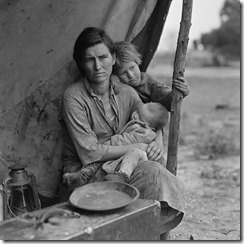
The Community of Jesus
 Soon after arriving with our church’s mission team at Turtle Shores, a Christian mission and retreat center in Belize, I had an interesting conversation with Sarah Bradbury, one of the resident missionaries who worked alongside us.
Soon after arriving with our church’s mission team at Turtle Shores, a Christian mission and retreat center in Belize, I had an interesting conversation with Sarah Bradbury, one of the resident missionaries who worked alongside us.
Sarah told me that she had been doing a lot of reading in the Bible about the poor and asked me about my understanding of what the Bible says about our obligations to the poor.
While she knew that we were supposed to help the poor, she wondered if the Bible set limits as to how much we were supposed to help.
Normally, when someone asks me a question like that they are trying to figure out the bare minimum they have to do to be biblical and yet still keep as much of their own wealth as possible, but that wasn’t the case here.
Sarah and her husband, Mark, had already given up much in order to come to Belize and serve the poor—more than most would be willing to give up.
Rather, I sensed two things.
First, she has seen first-hand how only giving money to the poor can actually do them harm. The help has to be strategic—it has to be respectful of the dignity of the poor, and it cannot foster dependency.
Second, there was a recognition of the magnitude of the task. Sarah and Mark had already given up so much, and yet the village of Gales Point, located on Brazil’s Southern Lagoon, was still beset with a deep poverty.
If she and Mark gave up much more they would be as poor as the rest of the village and would require the very help that they came to render.
I told her that part of the problem was how we think and talk about the poor—specifically, how we keep calling them “the poor.” By doing so, we define them as “not-us.” They are the “other” and we are the “us;” they are “the poor” and we are the “not-poor.”
However you define those people who are part of your “us,” we always take care of “us.” My wife, Pam, is part of my “us,” as is my daughter Angela and my son Austin.
I can’t imagine putting a limit on how much I am willing to come to the aid of any of them. If they need me, I’m there. This is not the case for anyone who is not a part of my “us.”
For example, I’ve always felt it was my obligation to provide for my children’s education to the best of my ability, but I don’t feel the same obligation to someone else’s children.
While most of us are willing to help someone who is not part of our “us,” there is a limit to how much we feel obligated to help someone who is “other.” In other words, it comes down to community—who is part of our community and who is not.
The poor referred to in the Old Testament were almost all Israelites, and the prophetic condemnation we read is toward rich and/or powerful Israelites. They were condemned for not taking care of some of their own community, for treating their fellow Israelites as “others.”
Then Jesus took the concept of community and expands it. In Jesus’ view, there are no “others,” only “us.”
So, he told the story of two Israelites who treat their fellow Israelite—robbed and lying unconscious on the side of the road—as an “other” toward whom there are limits to their willingness to give aid, while, the ultimate “other,” a Samaritan, treats the beaten Israelite as an “us.”
And Jesus asked, “Who is my mother and my brothers?” In other words, who is my “us”? Jesus answered, saying, everyone who does the will of God is part of his “us.”
In another parable, Jesus said that when you’ve helped “the poor,” “the sick” and “the imprisoned”—all terms of “otherness”—you’ve helped Jesus, himself.
And since we all want Jesus to be part of our “us,” what Jesus has done is declare that all these are part of our community, of our “us,” as well.
In the Kingdom of God, there are no “others,” there is only “us”—and we all know enough to take care of everyone who is an “us,” right?
 I am a lifelong student of the Bible, and have been a pastor for over twenty-five years. My desire through this blog is to help people see things in the intersection of Scripture and real life that they might have missed. The careless handling of the Bible is causing a lot of problems in our churches and our culture--and is literally turning people away from the church, and, sometimes, God. I hope to treat Scripture with the respect it deserves, and, even if you don't agree with what I say, give you some insight.
Feel free to leave a comment. I promise to respond to you. All I ask is that you be respectful in your comments.
I am a lifelong student of the Bible, and have been a pastor for over twenty-five years. My desire through this blog is to help people see things in the intersection of Scripture and real life that they might have missed. The careless handling of the Bible is causing a lot of problems in our churches and our culture--and is literally turning people away from the church, and, sometimes, God. I hope to treat Scripture with the respect it deserves, and, even if you don't agree with what I say, give you some insight.
Feel free to leave a comment. I promise to respond to you. All I ask is that you be respectful in your comments. 
Connect with Me